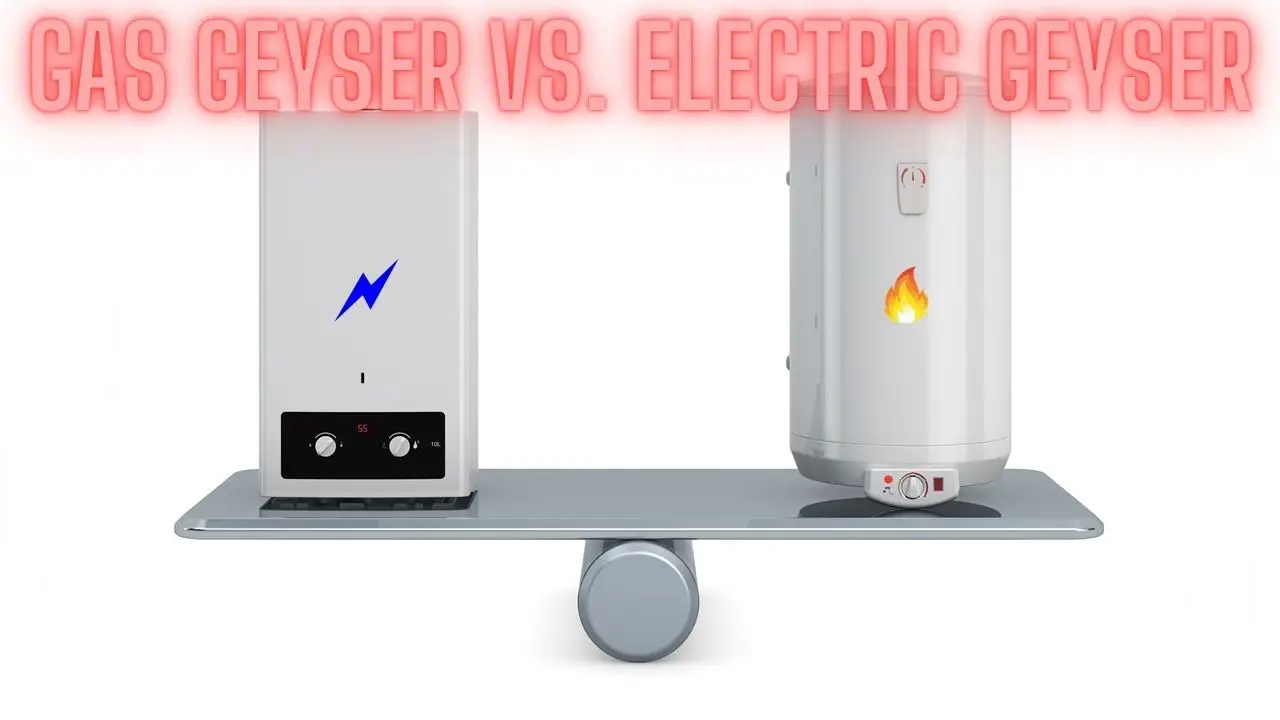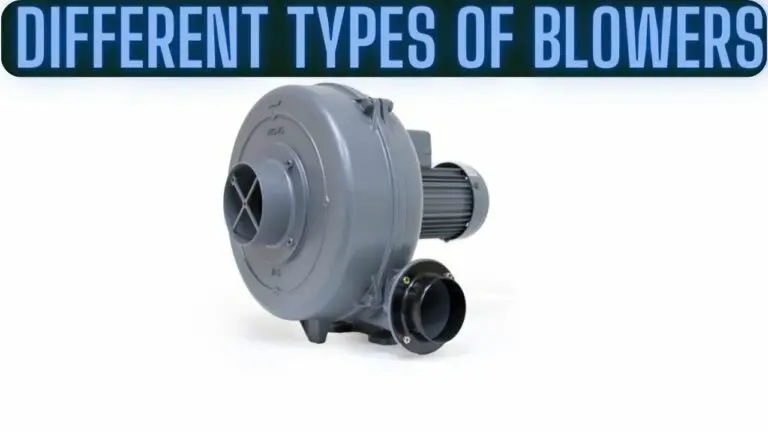Gas Geyser vs. Electric Geyser: Choosing the Right Water Heater
1. Introduction
When it comes to hot water for your daily needs, you have two primary options: gas geysers and electric geysers. Both of these appliances are designed to provide you with a continuous supply of hot water, but they operate on different principles and come with their own sets of advantages and disadvantages. In this comprehensive guide, we’ll explore the key differences between gas geysers and electric geysers, helping you make an informed decision about which one is the right water heating solution for your home.
Hot water is an essential part of our daily lives, serving various purposes from bathing and cooking to cleaning and washing. To meet this demand, water heaters, commonly known as geysers, are a ubiquitous household appliance. However, when it comes to selecting the right type of geyser for your home, you’re faced with the choice between gas and electric geysers.
Each of these options has its unique characteristics, advantages, and drawbacks. To make an informed decision, it’s crucial to understand how gas and electric geysers work and evaluate their suitability based on your specific needs and circumstances.
In this article, we’ll delve into the functioning, pros, and cons of both gas geysers and electric geysers, followed by a detailed comparison to help you decide which one is the better fit for your household.
2. How Gas Geysers Work
Gas geysers, also known as gas water heaters or gas-powered tankless water heaters, provide hot water on demand by heating water directly as it passes through the unit. Here’s how gas geysers work:
- Ignition: When hot water is required, the user activates the gas geyser by turning on a hot water tap. This triggers the ignition process.
- Gas Supply: A gas supply line connected to the geyser delivers natural gas or propane fuel to the unit. Some gas geysers may also use liquefied petroleum gas (LPG).
- Burner Activation: Upon ignition, a burner or series of burners inside the gas geyser are activated. These burners are usually powered by a pilot light or electronic ignition system.
- Combustion: The gas burners create a flame that heats a heat exchanger or coil within the geyser. As cold water enters the unit, it passes through this heat exchanger.
- Heat Transfer: The heat from the combustion process is transferred to the water flowing through the heat exchanger. This raises the temperature of the water rapidly as it passes through the unit.
- Temperature Control: Gas geysers typically feature temperature sensors and controls to regulate the temperature of the outgoing hot water. This ensures that the water is heated to the desired temperature for various household tasks.
- Hot Water Delivery: Once heated, the hot water is delivered directly to the hot water tap or showerhead connected to the gas geyser. Since gas geysers heat water on demand, there is no need for a storage tank, allowing for continuous hot water supply as long as there is gas and water flow.
- Safety Features: Gas geysers incorporate safety features such as flame failure devices and thermal cut-off switches to shut off the gas supply in the event of a malfunction or overheating. This helps prevent accidents and ensures safe operation.
- Efficiency: Gas geysers are known for their efficiency in heating water quickly and providing hot water on demand. Compared to traditional storage water heaters, gas geysers eliminate standby heat loss since they do not store hot water in a tank.
Overall, gas geysers offer a convenient and efficient solution for providing hot water in homes, especially in areas where gas supply is readily available. However, proper installation and maintenance are essential to ensure safe and reliable operation. It’s important to follow manufacturer’s guidelines and have gas geysers installed by qualified professionals.
2.1 Pros of Gas Geysers
- Quick Heating: Gas geysers heat water quickly, delivering hot water almost instantly. This is especially beneficial when you need hot water in a hurry.
- Continuous Supply: Gas geysers provide a continuous supply of hot water as long as there is a gas supply. There’s no need to wait for a storage tank to refill.
- Energy Efficiency: Gas geysers are generally more energy-efficient than electric geysers, resulting in lower operating costs.
2.2 Cons of Gas Geysers
- Installation Costs: Installing a gas geyser may require professional help and can be more expensive due to the need for gas connections and proper ventilation.
- Space Requirements: Gas geysers often require more space for proper installation, including adequate venting for combustion gases.
- Safety Concerns: Gas geysers can pose safety risks if not installed and maintained correctly. Gas leaks or improper ventilation can lead to hazardous situations.
3. How Electric Geysers Work
Electric geysers, also known as electric water heaters or electric storage water heaters, work by heating water stored in a tank using an electric heating element. Here’s how electric geysers work:
- Water Storage: Electric geysers consist of a tank, usually made of steel or glass-lined steel, that stores a certain volume of water. The tank is insulated to minimize heat loss and maintain water temperature.
- Cold Water Inlet: Cold water enters the geyser through a dedicated inlet pipe connected to the main water supply. A dip tube inside the tank directs incoming cold water to the bottom of the tank, ensuring it mixes with and displaces the hot water already stored inside.
- Electric Heating Element: Inside the tank, one or more electric heating elements are immersed in the water. These heating elements are typically made of metal and are designed to withstand high temperatures. When activated, they generate heat through electrical resistance.
- Thermostat Control: Electric geysers are equipped with a thermostat that monitors the temperature of the water inside the tank. The thermostat controls the operation of the heating elements, turning them on and off as needed to maintain the desired water temperature.
- Heating Process: When the water temperature drops below the set point on the thermostat, the heating elements are activated, and electrical current flows through them, generating heat. The heating elements transfer heat to the surrounding water, gradually raising its temperature.
- Temperature Regulation: As the water heats up, the thermostat continuously monitors its temperature. Once the water reaches the desired temperature, the thermostat shuts off power to the heating elements, preventing overheating.
- Hot Water Outlet: When hot water is needed, it is drawn from the top of the tank through a dedicated outlet pipe connected to the plumbing system. As hot water is drawn from the tank, cold water enters to replace it, ensuring a continuous supply of hot water.
- Safety Features: Electric geysers incorporate safety features such as temperature and pressure relief valves to prevent overheating and excessive pressure buildup inside the tank. These valves help ensure safe operation and protect against potential hazards.
- Energy Efficiency: Electric geysers are relatively energy-efficient, especially newer models with improved insulation and energy-saving features. However, standby heat loss can occur, where heat escapes from the tank even when hot water is not being used. Some electric geysers mitigate this by using thicker insulation or energy-efficient heating elements.
Overall, electric geysers provide a reliable and convenient source of hot water for residential and commercial applications. Proper maintenance, including periodic flushing of the tank to remove sediment buildup and testing of safety features, is essential to ensure safe and efficient operation.
3.1 Pros of Electric Geysers
- Ease of Installation: Electric geysers are relatively easy to install and do not require gas connections or ventilation systems.
- Compact Size: Electric geysers are often more compact than gas geysers, making them suitable for homes with limited space.
- Safety: Electric geysers are considered safer than gas geysers in terms of the risk of gas leaks and carbon monoxide emissions.
3.2 Cons of Electric Geysers
- Slower Heating: Electric geysers typically take longer to heat water compared to gas geysers, especially if the tank is empty.
- Limited Hot Water Supply: Electric geysers with storage tanks have a limited supply of hot water. Once the tank is empty, you may need to wait for it to heat up again.
- Higher Operating Costs: Electric geysers are often less energy-efficient than gas geysers, leading to higher electricity bills.
4. Comparison: Gas Geyser vs. Electric Geyser
When choosing between a gas geyser and an electric geyser for your hot water needs, several factors should be considered. Here’s a comparative analysis of the two types of geysers:
- Energy Source:
- Gas Geyser: Gas geysers are powered by natural gas or propane, providing an efficient and cost-effective heating solution for homes with access to gas supply. They rely on combustion to heat water and can operate even during power outages.
- Electric Geyser: Electric geysers are powered by electricity and are suitable for homes without access to gas supply. They use electric heating elements to heat water and require a continuous supply of electricity to operate.
- Installation and Cost:
- Gas Geyser: Installing a gas geyser may require professional installation to ensure proper gas line connections and venting. While the upfront cost of a gas geyser may be higher due to installation and gas line connections, gas-powered heating typically costs less per unit of energy compared to electricity.
- Electric Geyser: Electric geysers are generally easier to install since they do not require gas line connections or venting. They have a lower upfront cost compared to gas geysers, but electricity tends to be more expensive than gas in the long run, resulting in higher operating costs.
- Efficiency:
- Gas Geyser: Gas geysers are known for their high efficiency in heating water quickly and providing hot water on demand. They have lower standby heat loss compared to electric geysers since they do not store hot water in a tank.
- Electric Geyser: Electric geysers are less efficient than gas geysers in terms of energy consumption, as they may experience standby heat loss from the stored hot water in the tank. However, newer electric geyser models with improved insulation and energy-saving features offer increased efficiency.
- Performance:
- Gas Geyser: Gas geysers typically heat water faster than electric geysers, providing hot water on demand with minimal waiting time. They are suitable for households with high hot water demand and can deliver a continuous supply of hot water.
- Electric Geyser: Electric geysers may take longer to heat water compared to gas geysers, especially in larger tank sizes. However, once heated, electric geysers can maintain hot water temperature consistently, making them suitable for households with moderate hot water demand.
- Safety and Maintenance:
- Gas Geyser: Gas geysers require regular maintenance to ensure safe operation, including inspection of gas lines, combustion chamber cleaning, and venting checks. They also pose a risk of carbon monoxide poisoning if not properly vented.
- Electric Geyser: Electric geysers are generally considered safer than gas geysers since they do not produce combustion gases or have open flames. They require minimal maintenance, such as periodic flushing of the tank to remove sediment buildup and testing of safety features.
- Environmental Impact:
- Gas Geyser: Gas geysers produce greenhouse gas emissions during combustion, contributing to air pollution and climate change. However, they may have lower carbon emissions compared to electric geysers depending on the source of electricity generation in your area.
- Electric Geyser: Electric geysers are considered more environmentally friendly in regions with low-carbon electricity generation, such as renewable energy sources like wind or solar power. However, in areas with fossil fuel-based electricity generation, electric geysers may have higher carbon emissions compared to gas geysers.
In summary, the choice between a gas geyser and an electric geyser depends on factors such as energy availability, installation costs, efficiency, performance, safety considerations, and environmental impact. Consider your specific needs, preferences, and local energy costs when selecting the most suitable type of geyser for your home.
5. Choosing the Right Water Heater
The choice between a gas geyser and an electric geyser depends on your specific needs and circumstances:
- Gas Geyser: Consider a gas geyser if you value quick heating, continuous hot water supply, and lower operating costs. Ensure that you have access to a reliable gas supply and can meet safety requirements.
- Electric Geyser: Choose an electric geyser if you prioritize ease of installation, safety, and availability of electricity. Electric geysers are also suitable for homes with limited space.
6. Safety Considerations
Safety is paramount when using water heaters:
- Gas Geyser Safety: Gas geysers require proper ventilation to prevent the buildup of carbon monoxide. They should be installed by qualified professionals who can ensure compliance with safety regulations. Regular maintenance is essential to detect and address any gas leaks or issues.
- Electric Geyser Safety: Electric geysers are generally considered safer because they do not involve combustion. However, like all electrical appliances, they should be installed and maintained correctly to prevent electrical hazards.
7. FAQS
What is the primary difference between a gas geyser and an electric geyser?
- The primary difference lies in their energy sources. Gas geysers use natural gas or liquefied petroleum gas (LPG) to heat water, while electric geysers use electricity as their energy source.
Which geyser type heats water faster, gas or electric?
- Gas geysers generally heat water faster than electric geysers. Gas geysers provide hot water almost instantly, whereas electric geysers may take longer, especially if the tank is empty.
Are gas geysers more energy-efficient than electric geysers?
- Gas geysers are typically more energy-efficient than electric geysers because they heat water on demand, resulting in lower operating costs. Electric geysers can have standby heat loss, which consumes electricity even when hot water is not in use.
Do gas geysers or electric geysers have lower operating costs?
- Gas geysers often have lower operating costs, especially if natural gas or LPG is cost-effective in your area. Electric geysers may have higher operating costs due to electricity rates and potential standby heat loss.
Are gas geysers safer than electric geysers?
- Both gas and electric geysers can be safe if installed and maintained correctly. However, gas geysers require proper ventilation to prevent carbon monoxide buildup and should be installed by professionals to ensure safety. Electric geysers have fewer combustion-related safety concerns but should also be installed and maintained properly.
Which type of geyser is more suitable for homes with limited space?
- Electric geysers are often more compact than gas geysers, making them a better choice for homes with limited space.
Can I use a gas geyser if there is no natural gas supply in my area?
- A gas geyser requires access to a continuous supply of natural gas or LPG. If these gases are not available in your area, a gas geyser may not be a feasible option.
Do gas geysers or electric geysers have a more significant environmental impact?
- Gas geysers can emit combustion byproducts and contribute to greenhouse gas emissions, making them less environmentally friendly. Electric geysers produce no direct emissions on-site, but their environmental impact depends on the source of electricity in your region.
Can I switch from an electric geyser to a gas geyser or vice versa?
- Switching between geyser types may require modifications to your plumbing and energy supply systems. It’s best to consult with a professional plumber or electrician for such transitions.
Are gas geysers or electric geysers more suitable for areas with frequent power outages?
- Gas geysers may be more suitable for areas with frequent power outages because they do not rely on electricity to operate. However, electric geysers with proper insulation may still provide hot water during short outages.
Do gas geysers or electric geysers have a longer lifespan?
- Both gas and electric geysers have a similar lifespan, which typically ranges from 8 to 12 years or more, depending on usage and maintenance.
Which type of geyser is more suitable for households with multiple users and high hot water demand?
- Gas geysers are often better suited for households with multiple users and high hot water demand because they can provide a continuous supply of hot water as long as there is a gas supply.
8. Conclusion
Choosing between a gas geyser and an electric geyser involves weighing factors such as energy efficiency, installation and maintenance requirements, operating costs, environmental impact, and the availability of energy sources. Both types of geysers have their advantages and disadvantages, and the right choice depends on your individual preferences and circumstances.
Ultimately, it’s essential to prioritize safety when selecting, installing, and maintaining a water heater. Whether you opt for a gas geyser or an electric geyser, ensuring proper installation and adherence to safety guidelines is crucial to enjoying hot water reliably and safely in your home.







